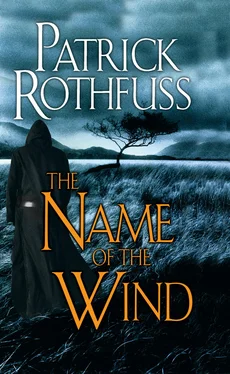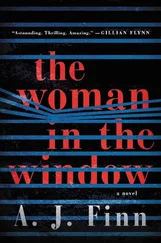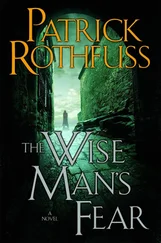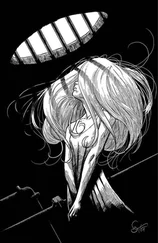I learned that Tarbean is vast. You cannot understand if you have not seen it yourself. It is like the ocean. I can tell you of the waves and water, but you don’t begin to get an inkling of its size until you stand on the shore. You don’t really understand the ocean until you are in the midst of it, nothing but ocean on all sides, stretching away endlessly. Only then do you realize how small you are, how powerless.
Part of Tarbean’s vastness is the fact that it is divided into a thousand small pieces, each with its own personality. There was Downings, Drover Court, the Wash, Middletown, Tallows, Tunning, Dockside, the Tarway, Seamling Lane. . . . You could live your whole life in Tarbean and never know all its parts.
But for most practical purposes Tarbean had two pieces: Waterside and Hillside. Waterside is where people are poor. That makes them beggars, thieves, and whores. Hillside is where people are rich. That makes them solicitors, politicians, and courtesans.
I had been in Tarbean for two months when I first thought to try my hand at begging Hillside. Winter gripped the city firmly and the Midwinter Pageantry was making the streets more dangerous than usual.
This was shocking to me. Every winter for the entirety of my young life our troupe had organized the Midwinter Pageantry for some town. Dressed in demon masks, we would terrorize them for the seven days of High Mourning, much to everyone’s delight. My father played an Encanis so convincing you’d think we’d conjured him. Most importantly, he could be frightening and careful at the same time. No one was ever hurt when our troupe was in charge.
But in Tarbean it was different. Oh, the pieces of the pageantry were all the same. There were still men in garishly painted demon masks skulking about the city, making mischief. Encanis was out there too, in the traditional black mask, making more serious trouble. And though I hadn’t seen him, I didn’t doubt that silver-masked Tehlu was striding around the better neighborhoods, playing his part. As I said, the pieces of the pageantry were the same.
But they played out differently. For one thing, Tarbean was too big for one troupe to provide enough demons. A hundred troupes wouldn’t be enough. So, rather than pay for professionals, as would be sensible and safe, the churches in Tarbean took the more profitable path of selling demon masks.
Because of this, on the first day of High Mourning ten thousand demons were set loose on the city. Ten thousand amateur demons, with license to make whatever mischief they had minds to.
This might seem like an ideal situation for a young thief to take advantage of, but really the opposite was true. The demons were always thickest Waterside. And while the great majority behaved properly, fleeing at the sound of Tehlu’s name and keeping their devilry within reasonable bounds, many did not. Things were dangerous the first few days of High Mourning, and I spent most of my time simply staying out of harm’s way.
But as Midwinter approached, things settled down. The number of demons steadily decreased as people lost their masks or tired of the game. Tehlu no doubt eliminated his share as well, but silver mask or no, he was only one man. He could hardly cover the whole of Tarbean in just seven days’ time.
I chose the last day of Mourning for my trip Hillside. Spirits are always high on Midwinter’s Day, and high spirits mean good begging. Best of all, the ranks of the demons were noticeably thinned, which meant it was reasonably safe to be walking the streets again.
I set out in the early afternoon, hungry because I couldn’t find any bread to steal. I remember feeling vaguely excited as I headed toward Hillside. Maybe some part of me remembered what Midwinter had been like with my family: warm meals and warm beds afterward. Maybe I had been infected by the smell of evergreen boughs being gathered into piles and set ablaze in celebration of Tehlu’s triumph.
That day I learned two things. I learned why beggars stay Waterside, and I learned that no matter what the church might tell you, Midwinter is a time for demons.
I emerged from an alley and was instantly struck by the difference in atmosphere between this part of the city and where I had come from.
Waterside, merchants wheedled and cajoled customers, hoping to lure them into their shops. Should that fail, they were not shy about bursting into fits of bellicosity: cursing or even openly bullying customers.
Here the shop owners wrung their hands nervously. They bowed and scraped and were unfailingly polite. Voices were never raised. After the brutal reality of things Waterside, it seemed to me as if I had stumbled into a formal ball. Everyone was dressed in new clothes. Everyone was clean, and they all seemed to be participating in some sort of intricate social dance.
But there were shadows here, too. As I surveyed the street I spotted a pair of men lurking in the alleyway across from me. Their masks were quite good, bloodred and fierce. One had a gaping mouth and the other a grimace of pointed white teeth. They were both wearing the traditional black hooded robes, which I approved of. So many of the demons Waterside didn’t bother with the proper costume.
The pair of demons slipped out to follow a well-dressed young couple who were strolling idly down the street, arm in arm. The demons stalked them carefully for nearly a hundred feet, then one of them snatched the gentleman’s hat and thrust it into a nearby snowdrift. The other grabbed the woman in a rough embrace and lifted her from the ground. She shrieked while the man struggled with the demon for possession of his walking stick, obviously flummoxed by the situation.
Luckily his lady maintained her composure. “Tehus! Tehus!” she shouted. “Tehus antausa eha!”
At the sound of Tehlu’s name the two red-masked figures cowered, then turned and ran off down the street.
Everyone cheered. One of the shopkeepers helped the gentleman retrieve his hat. I was rather surprised by the civility of it all. Apparently even the demons were polite on the good side of town.
Emboldened by what I had seen, I eyed the crowd, looking for my best prospects. I stepped up to a young woman. She wore a powder blue dress and had a wrap of white fur. Her hair was long and golden, curled artfully around her face.
As I stepped forward she looked down at me and stopped. I heard a startled intake of breath as one hand went to her mouth. “Pennies, ma’am?” I held out my hand and made it tremble just a little. My voice trembled too. “Please?” I tried to look every bit as small and hopeless as I felt. I shuffled from foot to foot in the thin grey snow.
“You poor dear,” she sighed almost too quietly for me to hear. She fumbled with the purse at her side, either unable or unwilling to take her eyes from me. After a moment she looked inside her purse and brought something out. As she curled my fingers around it I felt the cold, reassuring weight of a coin.
“Thank you, ma’am,” I said automatically, I looked down for a moment and saw silver glinting through my fingers. I opened my hand and saw a silver penny. A whole silver penny.
I gaped. A silver penny was worth ten copper pennies, or fifty iron ones. More than that, it was worth a full belly every night for half a month. For an iron penny I could sleep on the floor at the Red Eye for the night, for two I could sleep on the hearth by the embers of the evening fire. I could buy a rag blanket that I would hide on the rooftops, keeping me warm all winter.
I looked up at the woman, who was still looking down at me with pitying eyes. She couldn’t know what this meant. “Lady, thank you,” my voice cracked. I remembered one of the things that we said back when I lived in the troupe. “May all your stories be glad ones, and your roads be smooth and short.”
Читать дальше











